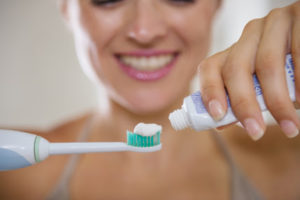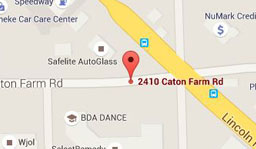Protecting Your Teeth From Acid
 Acid. It’s what makes lemons taste sour and what makes vinegar such a great cleaning solution. It’s also your teeth’s worst enemy. Cavities and tooth decay are caused by acids, and extensive exposure to acid can cause weakened enamel.
Acid. It’s what makes lemons taste sour and what makes vinegar such a great cleaning solution. It’s also your teeth’s worst enemy. Cavities and tooth decay are caused by acids, and extensive exposure to acid can cause weakened enamel.
If you want to keep your teeth healthy and strong, it’s important to know your enemy! Here’s a closer look at how acid attacks teeth and how to protect them.
How Does Acid Harm Teeth?
The hard outer layer of your teeth is called the enamel. It’s made from minerals including calcium and phosphorus, and when these minerals leech out of the enamel, it becomes softer and weaker. Acid causes minerals to leech out of the enamel, so whenever your teeth are exposed to acid, they become increasingly prone to damage.
When your tooth enamel has been weakened by acid, it is much easier to damage when you brush a little too hard or use an abrasive toothpaste. Grinding your teeth and chewing on crunchy foods may also remove some of the weakened enamel from your teeth. This leaves your teeth sensitive and more prone to cavities.
When Are Your Teeth Exposed to Acid?
There are couple of different ways in which your teeth may become exposed to acid.
Bacterial Secretions
You’re probably aware that sugar is bad for your teeth. What you may not have realized is that it’s not the sugar itself that causes the damage. Rather, the sugar feeds oral bacteria, and these oral bacteria release acid. The acid then takes its toll on your dental enamel. Excessive consumption of sugar leads not only to all-over weakening of the enamel but also to “soft spots” or cavities.
Acidic Foods and Beverages
Certain food products also contribute to the development of cavities and overall weakening of enamel because they themselves are acidic. Common acidic foods include pickles, orange juice, lemons, cranberries, tomato products, coffee, and wine. Soda is terrible for your teeth not just because it is high in sugar but also because it is acidic.
Drugs
Some drugs are also highly acidic, causing enamel damage over time. Methamphetamine is so acidic that most users end up losing some or all of their teeth eventually. Cocaine also mixes with saliva to form an acidic substance that contributes to tooth decay.
How Can You Protect Your Teeth From Acid?
All of the classic oral hygiene habits that your dentist recommends are designed to help protect your teeth from acid. Brushing your teeth twice a day helps remove oral bacteria and the acids they secrete. Flossing removes bacteria and acids from between the teeth. Steering clear of sugary drinks and foods ensures your oral bacteria don’t have too much to feed on, which limits their acid production.
There are a few other steps you can take to protect your teeth from an acid attack.
Use a Straw With Acidic Beverages
Try to limit your consumption of acidic foods and beverages. When you do enjoy acidic drinks, like orange juice or soda, drink them through the straw. This deposits the drink further back on your tongue, away from your teeth, so the acid does not have as much direct contact with your enamel.
Chew Sugar-Free Gum to Promote Saliva Production
Saliva is your mouth’s natural defense against acid erosion. It is meant to rinse away acids and oral bacteria. However, many people suffer from dry mouth, leaving them prone to acid erosion and tooth decay. If your mouth frequently feels dry, chewing sugar-free gum throughout the day will help boost saliva production. You may also want to use a special mouthwash made for dry mouth sufferers, which doesn’t contain alcohol.
Avoid Grinding and Clenching Your Teeth
If your tooth enamel has been weakened by acid, grinding or clenching your teeth can make the damage much worse. If you find yourself grinding your teeth during the day, try squeezing a stress ball or practicing some deep breathing exercises to break the habit. If you think you may grind or clench your teeth at night, ask your dentist to fit you for a nighttime mouth guard.
How Is Acid Damage Treated?
Individual cavities, of course, can be drilled and filled with composite or metal amalgam. If any of your teeth are severely eroded by acid, your dentist may recommend covering them with crowns.
If your tooth enamel has been weakened overall by acid, there are a few steps your dentist may recommend to help re-strengthen your enamel and prevent further damage. You won’t get back any enamel that you have lost, but you can strengthen the enamel that you have left.
Fluoride Treatments
Fluoride is a mineral that strengthens the enamel by allowing it to integrate more calcium into its structure. Your dentist may recommend at-home fluoride rinses to help rebuild your enamel or schedule an in-office fluoride treatment to expose your teeth to a higher concentration of fluoride.
Mineral Supplements
To rebuild weak enamel, make sure you’re getting plenty of calcium, phosphorus, and magnesium in your diet. Taking a multivitamin supplement is one good way to ensure an adequate intake of these nutrients. Your dentist may recommend specific supplements based on the overall condition of your enamel.
Protecting your teeth from the effects of acid requires a multi-pronged approach with proper dental hygiene, good eating habits, and drug avoidance. Make sure you schedule regular preventative dental checkups at Crest Hill Family Dental so that, if acids are harming your teeth, your dentist is able to catch the problem early on.

